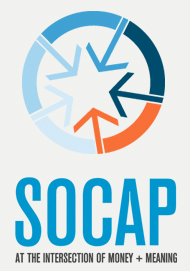Impact IQ - There’s now a good answer for impact investors who wonder where to look for deals in sustainable seafood and ocean preservation: Fish 2.0.
Last week’s two-day event to cap the year-long business competition showcased 20 finalists and semi-finalists with a wide range of seafood businesses from distribution and marketing systems to tracking and data technologies to aquaculture production schemes. The ventures varied in both social and environment impact and investment-readiness, but the many investors in attendance seemed to find at least some deals of interest.
“Awareness about sustainable seafood has increased and continues to rise,” said Mitchell Lench of Treetops Capital, a New York fund that invests in microfinance, green housing and small business development. “It was useful to see so many different types of sustainable seafood companies all in one place.”
The three winning ventures, which split $75,000 in prize money, typified the breadth of the entries. The winning company, Blue Sea Labs in San Francisco, operates a direct-to-consumer seafood e-commerce site and logistics service that helps fishermen gain higher profits by eliminating middlemen from the distribution chain. “It’s an area ripe for disruption and new technology,” said Martin Reed, Blue Sea’s CEO, who says the company’s logistics system saves 25 percent on shipping but, more importantly, reduces late delivery by 65 percent.
The runner-up was Cryoocyte, a Cambridge, Mass., startup that is developing a way to freeze fisheggs, a longstanding challenge. By freezing eggs when they are abundant, fish farms could produce at full capacity year-round, improving their own profits and productivity. The technology, if proven, would have a host of other applications as well, such as the creation of a genetic egg bank to preserve endangered species, helping fish farms to recover more quickly from floods and disease outbreaks, and enabling hatcheries to ship eggs further than they can currently send fingerlings.
In addition to the prize money, Cryoocyte found potential customers at Fish 2.0. “We met people here telling us they want to use our services because we can make their businesses better,” said Dmitry Kozachenok, the company’s CEO and recent graduate from Harvard Business School.
The third-place finisher, Ho’olulu Pacific, based in Oahu, Hawaii, is a local operation, with a network of 70 backyard aquaponic systems that provide fish and vegetables to native Hawaiians to improve their diets and boost their incomes. The $1,500 kits include everything needed for the systems, as well as a contract for the company’s representatives to collect the surplus for sale to grocery stores and restaurants.
The semi-finalists attracted attention as well. Each of the 10 contestants in the 90-second “fast pitch” competition received multiple votes from the audience. The result was a tie, between Smartfish, previously featured on Impact IQ, and Inland Shrimp Co.
“What was most inspiring for me was to see over 150 impact investors, technical experts, grant-makers, experienced business leaders, and emerging entrepreneurs share ideas for the future of seafood,” Monica Jain, the longtime sustainable seafood advocate who masterminded every aspect of Fish 2.0, wrote on National Geographic’s Ocean Views blog. “I expect that connections made last week will contribute to multiple new investments and business relationships in the sustainable seafood sector.”
Impact IQ provides original reporting and analysis for investors and entrepreneurs pursing social, environmental and financial returns. This article is part of Impact IQ’s series on Oceans and Sustainable Fisheries, in association with SOCAP, the annual Social Capital Markets conference in San Francisco.

